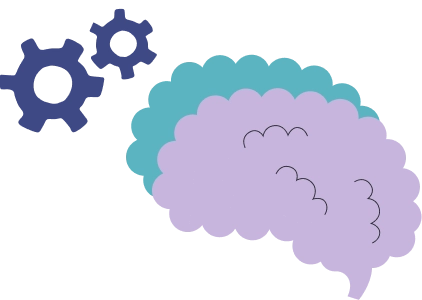Medication-Assisted Treatment (MAT) Program In New Hampshire
Medication-assisted treatment offers a proven way to manage withdrawal symptoms and reduce relapse risk. At Live Free Recovery, we combine evidence-based medication with clinical support to help clients recover with stability and structure.

What Is Medication-Assisted Treatment?
Medication-Assisted Treatment (MAT) combines FDA-approved medications with counseling and behavioral therapy. It helps ease cravings, reduce withdrawal, and support long-term recovery.
Why Choose Live Free Recovery?
Whole-Person Care
We combine therapy, mindfulness, and wellness practices to support your body and mind through recovery.
Personal Treatment Plans
Care is custom-built around you: your story, your goals, and your strengths. No two plans are the same.
Family Involvement
Your loved ones are kept in the loop with regular updates, education, and opportunities to participate.
Life Design Empowerment
We help you build a strong foundation for life beyond treatment, from relapse prevention to daily routines.
Our Licensed MAT Providers and Clinical Team
Our MAT program is led by licensed professionals who specialize in addiction medicine and substance use recovery. Everyone in our care receives personalized, medically informed treatment.

Client Testimonials
What Are the Benefits of Medication-Assisted Treatment?
- Eases withdrawal symptoms and physical discomfort
- Supports long-term sobriety and independence
- Helps manage mental health alongside addiction
- Lowers the risk of overdose and relapse
What to Expect in Our MAT Program in New Hampshire
We provide a structured program containing medical supervision, therapy, and ongoing support tailored to your needs. Here’s what you can expect:
- Clinical assessment and intake
- Individual and group therapy
- Support for co-occurring disorders
- Regular medication management
- Relapse prevention planning
- Step-down options like IOP and OP
What Are Different Forms of Medication-Assisted Treatment?
- Opioid Use Disorder (OUD) MAT: Combines meds like buprenorphine or methadone with therapy to lower cravings.
- Alcohol Use Disorder (AUD) MAT: Uses medications like naltrexone or acamprosate to support sobriety.
- Overdose Prevention MAT: Includes naloxone, which can reverse an opioid overdose and save lives.
MAT Timeline: From Intake to Long-Term Recovery
After intake and a medical evaluation, patients begin a personalized addiction treatment program. The medication protocol is tailored to their history and needs. MAT is strongly supported by ongoing therapy, and we monitor your progress along the way, making changes as needed to support long-term recovery.

Is Medication-Assisted Therapy Safe and Long-Term?
MAT is considered safe and effective when monitored by professionals. Many people remain on MAT for months or years as part of a stable recovery path.
How Effective Is MAT for Substance Use Disorders?
MAT is considered safe and effective when monitored by professionals. Many people remain on MAT for months or years as part of a stable recovery path.
MAT Program Benefits for Opioid and Alcohol Addiction
MAT reduces cravings, stabilizes mood, and helps individuals regain control, especially when used for opioids or alcohol dependence.
Medications Used in MAT for Alcohol and Opioid Use
MAT uses different medications depending on the substance. Each is approved for safety and works alongside therapy to support recovery.
MAT Medications for Alcohol Withdrawal Syndrome
Common medications include acamprosate, disulfiram, and naltrexone. These help reduce cravings and support abstinence after detox.
MAT Medications for Opioid Use Disorder
Buprenorphine, methadone, and extended-release naltrexone are used to reduce withdrawal and block the effects of opioid use.
Medications to Prevent Overdose (e.g., Naloxone)
Naloxone quickly reverses the effects of an opioid overdose. It’s safe, widely available, and easy to use in emergencies.
Admission Criteria and Clinical Screening
Getting started is easier than you think. We’ve designed our admissions process to be fast, respectful, and stress-free. From your first call, we’re here to support and guide you.
Our team is available 24/7 to answer questions or talk things through.
Frequently Asked Questions About MAT Therapy
What medications are commonly used in MAT?
The most common medications include buprenorphine, methadone, naltrexone, acamprosate, and disulfiram.
Is MAT simply replacing one addiction with another?
No. These medications don’t create a high; they help manage symptoms so you can focus on recovery.
How long does MAT last?
MAT length varies. Some people benefit from short-term use; others stay on it longer to support lasting change.
Can pregnant women participate in MAT?
Yes. MAT is often recommended during pregnancy to protect both the parent and baby during recovery.
Is MAT effective for treating opioid use disorder?
MAT is one of the most effective treatments available for opioid use disorder, especially when paired with therapy.
Can medication-assisted treatment be used for other addictions?
While it’s most often used for opioids and alcohol, MAT may also support recovery from other substances under medical supervision.
Does Insurance Cover MAT?
Most major insurance plans, including Medicaid, cover MAT services. We’ll verify your benefits and explain all costs before treatment begins. We also offer self-pay rates, financing options, and a sliding scale for those without insurance.





Get In Touch
"*" indicates required fields
Begin MAT Recovery Today at Live Free Recovery, NH
You don’t have to face addiction alone. At Live Free Recovery, our MAT program gives you the tools and support to take control of your future, without fear or shame. If you’re ready for a new start, our team is here to help you take that first step with care that’s personal, proven, and judgment-free.
Our Behavioral Health Resources

Get to know our experienced staff members who bring both clinical expertise and personal insight to the recovery journey.

See published content about our innovative approach to treatment and our impact in New Hampshire communities.

Access helpful tips and expert-backed mental health information. Explore insights into different conditions and advice for ongoing recovery.



